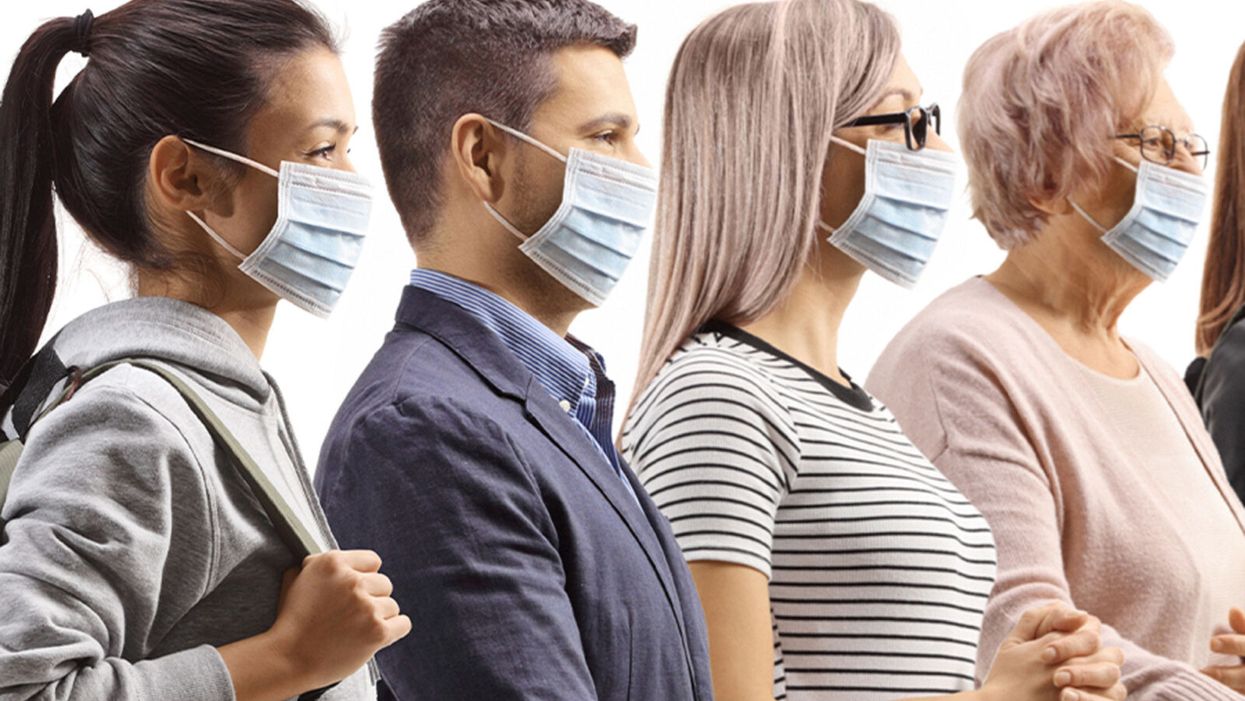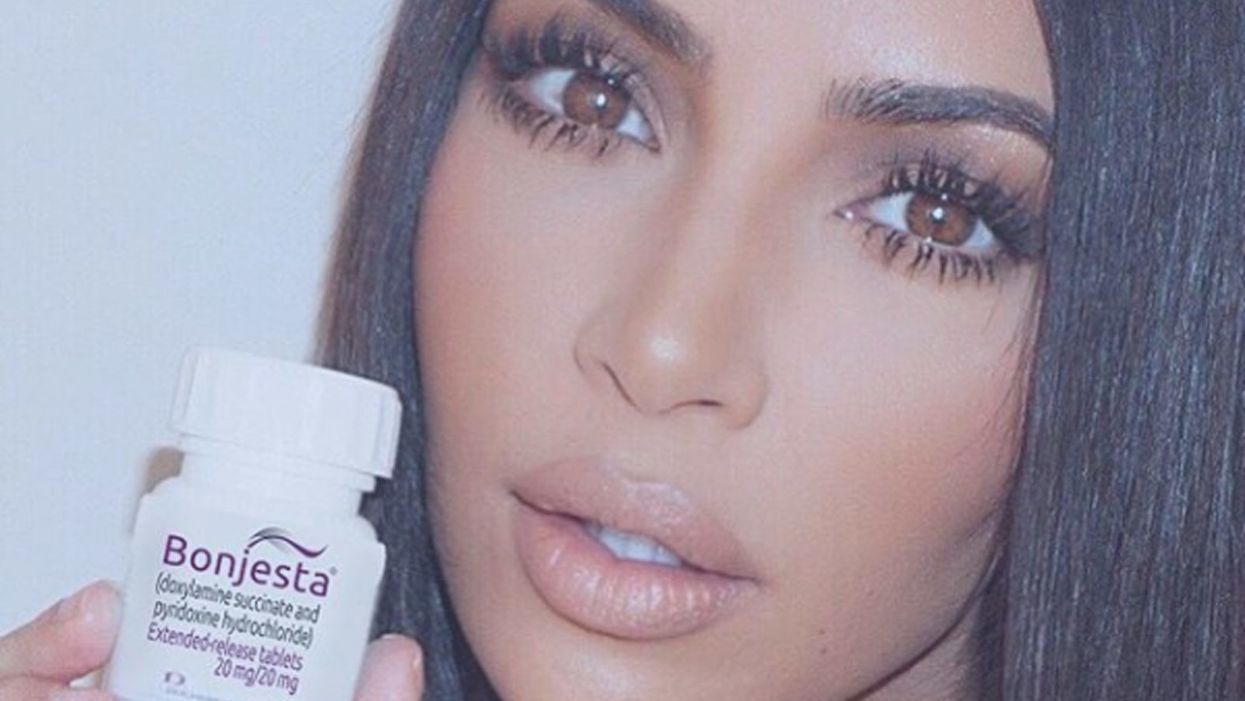“You First”: Who Will Be Front in Line to Get a COVID Vaccine?
A small subset of hospitals and institutions in high-risk areas are likely to go first, according to bioethicist Arthur Caplan.
There is a huge amount riding on the discovery of a vaccine effective against the Covid-19 virus.
Making 660 million of anything without a glitch is—to put it mildly—a tall order in a nation that remains short on masks, gowns, and diagnostic tests despite months of trying to meet demand.
The world is waiting for a vaccine that can liberate everyone from the constraints on liberty required by existing efforts to fight the virus with public health measures such as masks, isolation, and quarantining. President Trump, for the most part, has rejected tough public health measures. Instead he has staked his political future and those of the governors and Congressional Republicans who have followed his lead on delivering a vaccine before Election Day as the solution to the COVID-19 pandemic in the USA. Many scientific experts have been sounding encouraging notes about having a vaccine by the end of this year or early next, as have many CEOs among the more than 160 companies chasing various strategies to identify a safe and effective vaccine.
But the reality is that no matter how fast a vaccine appears, those who might benefit will face a significant period of time before they could receive one. This is due to a variety of realities. Any vaccine faces various regulatory hurdles to insure safety and efficacy. This means completing large-scale studies in tens of thousands of subjects hoping for enough cases of blunted natural infection versus a large placebo control group to determine that a vaccine works. And that takes time--plus adding in delays in manufacturing and delivery, which will create logjams for most prospective recipients.
Shipping is not going to be easy with cold chain storage requirements from -20 to -70 degrees Celsius, from factory to a doctor's office, depending on the vaccine. In addition, many of the vaccines under development require two doses--that is 660 million shots to cover just those in the United States. Making 660 million of anything without a glitch is—to put it mildly—a tall order in a nation that remains short on masks, gowns, and diagnostic tests, despite months of trying to meet demand.
There are three scenarios under which a vaccine can appear but without being in any way available to all Americans.
The first is a vaccine under development in the USA or with some USA financing begins to show promise before a full clinical trial is completed. Current vaccine trials are supervised by Data Safety and Monitoring Boards and those committees could tell a CEO eager to be first to market that their vaccine is looking good at the study's half-way point.
The CEO and vaccine manufacturing company's board then let the White House know that a magic bullet which can ensure the President's reelection is in hand. The President, as he has done many times with other COVID treatments, most recently convalescent plasma, intervenes with the FDA and demands approval using an Emergency Use Authorization, or invoking the Federal Right to Try law he and Mike Pence are constantly touting. FDA Commissioner Steve Hahn folds and an extremely limited supply of vaccine, maybe only 100,000 doses, is available just before Election Day.
The second scenario is that another nation discovers a vaccine that looks safe and effective and the USA is able to buy some supply of it. But again, we are likely, initially, to get an extremely limited amount.
Lastly, the vaccine is approved in a standard manner. A full randomized trial is done, the endpoints are met, and no serious adverse events are identified. It is a USA-funded vaccine so most of it is coming here first. Still the vials and needles and plugs need to be quality-controlled and shipped and stored at the right temperatures. Information sheets and consent forms need to be readied, offered, and signed. Odds are you won't see any of this vaccine until late next year. So, who is going to get the first shots?
Some people under all of these scenarios are going to say, "Count me out." They don't trust vaccines or they don't trust the government to provide a safe one. Others may say, "The first one out of the box may be OK, but I am going to wait for the 'best' one before I take one." Even if those numbers are large, it is still certain that there will be more takers than can be vaccinated.
If you look at the discussion of vaccine rationing, almost everybody — including government officials, FDA officials, advisory panelists and ethicists — says the first group that should get vaccinated are at-risk healthcare workers. They say it, although they're not always clear about why.
One reason is that you need to give it to health care workers first because they will keep the healthcare system going. Another is that you need to give it to them first because they face more risk and they should get rewarded for having done and continuing to do that -- their bravery ought to be rewarded and their risk reduced.
A subset of hospitals and institutions in high risk areas will [go first] and that will be it for a significant period of time.
Both of these arguments for health care worker priority are not completely convincing. Food and power and vaccine manufacturing are arguably as important as health care, but workers in those areas don't get priority attention in most guidelines. And many Americans face risks from COVID comparable to health care workers, especially those who are not on the front lines in ERs and ICUs. Prisoners, military personnel who work on warships, the elderly, nursing home residents, and poor minorities are disproportionately affected by COVID. However, none of them are going first, nor is it clear how to weigh their claims in competing against one another for a scarce vaccine.
But, there's something else that's interesting in deciding who goes first. When people all agree, as they almost always do, that it's health care workers who must go first, a huge problem remains. What is the definition of who's a healthcare worker? You could easily get millions and millions of people designated as healthcare workers who would have a claim to go first.
We normally think that health care worker means doctors and nurses. But, if we go beyond those who work in ERs and ICUs, the number is big. And we must, because no ER or ICU can run without huge numbers of supporting individuals.
If you don't vaccinate lab technicians, people who clean the rooms, make food, transport patients, provide security, do the laundry, run the IT, students, volunteers and so on, you're not going to have a functioning hospital. If you don't include those working in nursing homes, home care and hospices along with those making and supplying vital equipment and bringing in patients via ambulances, police cars, and fire trucks, you don't have a functioning ICU, much less a health care system.
The total number involved could easily exceed tens of millions depending on how broadly the definition is set.
So, what is likely to happen is that health care workers will not go first. A subset of hospitals and institutions in high risk areas will and that will be it for a significant period of time. Health care institutions in hot spots, plus the supporting services they need will go first and then vaccine availability will slowly expand to other health care institutions and the essential workers needed to keep them functioning. Then consideration will also be given to how best to control the spread of the virus in selecting hot spots versus saving prisoners or the poor. And you can be sure, whatever the guidelines are, that the military and security folks will demand their share.
For many, many months if not a year or more, most people will not have to face a choice about vaccinating. The supply just won't be there for the general public. It is a small sample of high-risk health care workers including vaccine manufacturing employees and shippers, plus essential workers to keep hospitals and nursing homes going, who will be first in line. Odds are you and your family will still be wearing masks and social distancing well into next year.
Kim Kardashian's recent Instagram post promoting a morning sickness medication she had never tried.
Where would you turn if you wanted the best advice about trying a new drug? A doctor with years of specialized training? A website with opinions from leading experts in the field? Maybe a review article by a trustworthy medical reporter. Or, maybe even go right to the source — an article about the drug in the peer-reviewed medical literature.
Or you could choose to get advice from someone whose education ended with high school and who almost certainly has had no training in pharmacology or scientific methodology. In America the answer is, sadly, the high school graduate if he or she is a huge celebrity.
Kardashian appears to have blessed a drug she never used and had no basis to endorse.
Drug manufacturers know this. They turn to celebrities, no matter how ignorant, ill-informed, money grubbing or air-headed, to pitch their goods directly to you on TV and the internet.
The latest example of this reliance on the utterly unqualified is the use of the surgically reengineered, reality show TV star Kim Kardashian to endorse a pill for women suffering from morning sickness during pregnancy. Kim, whose science training, whatever it was, ended when she graduated California's Marymount high school, recently offered this assessment of the medication:
"You know how sick I was while pregnant; I could barely get out of bed. That was before I found a safe & effective med to treat my morning sickness when diet & lifestyle changes didn't help. I hear there's a new formulation of the drug combination I took that's made to work faster & longer. If you're pregnant & feeling sick & changing your diet & lifestyle doesn't work, ask your doctor about Bonjesta® (doxylamine succinate/pyridoxine HCl). Most common side effect is drowsiness. Bonjesta.com for info."
She appears to have blessed a drug she never used and had no basis to endorse. And whether she got all the possible important side effects out there is not clear. In 2015, her internet post lauding another morning sickness drug, Diclegis, made by the same company, Duchesnay, now pushing Bonjesta, earned her $500,000 and Duchesnay a warning letter from the FDA for false and misleading advertising. Duchesnay dealt with the FDA and went on its merry way coming up with new meds relying on confirmation of their value by Kim.
Artificial demand creates more expense downstream for insurers, payer programs, and patients.
It seems pretty likely she was handsomely paid for her kind words about Bonjesta--payment that, if it occurred, is not disclosed in her endorsement or in most commercials in which celebrities tout drugs, vaccines and devices.
Legislators and patients often wonder why the cost of drugs in America is so high relative to the rest of the world. Well, one reason is the rest of the world does not tolerate direct-to-consumer ads aimed at ginning up demand when touted by actors, soap opera stars, sports stars, reality tv icons, quiz show hosts and others selling their fame so you will use a company's drug. Increasing the demand through celebrity endorsement allows companies to jack up their prices. Duchesnay did just that! Artificial demand creates more expense downstream for insurers, payer programs, and patients.
We treat marketing drugs on a par with marketing cosmetics, dishwashers, and fast food. And we get what Kim and other media celebs are paid for: useless information from unqualified sources who can grab eyeballs and get you to pester your doctor about what your idols say works.
Soccer Fans, Don’t Root for a Team Based on Genetics
A soccer ball through glass.
Editor's Note: This op/ed is in response to our Big Question of the month: "Should shared genetics play any role in encouraging sports fans to root for a certain team?"
23andMe is taking a lot of heat as one of the DNA aggregators whose databases may not be secure from prying third-party eyes. That is a huge issue, but the company is engaging in even more troubling behavior—using genetics to sponsor racism.
The ad campaign urges that you choose to root for a team based on genetics—theirs and yours.
There is plenty to condemn when it comes to racism in international sports. Fans taunting black and minority athletes is a huge problem. No sport has been as beset by racial taunting as soccer. Which is why the current advertising campaign by the genetic testing company 23andMe and Fox sports is especially foul.
With the U.S. men's team eliminated from the 2018 FIFA World Cup in Russia, many potential American fans were left without a primary rooting interest in the upcoming summer tournament. And that would be a disaster for Fox, which will be carrying the games.
The network teamed up with 23andMe to urge American soccer fans not to tune out the World Cup. Instead the ad campaign urges that you choose to root for a team based on genetics—theirs and yours. Given the fact that ethnicity and race are mainly cultural and social constructs, not biological, this suggestion seems more 19th than 21st century in terms of its justification.
The ads say, "root for your roots." Send your spit off to 23andMe for a DNA test and you might discover most of your genes came from one of the countries that did qualify for the biggest event in soccer. Saudi Arabia, for example. Or Panama, Argentina, Serbia, Senegal or Iran. So if you and the team have the same genes - voila, you have someone and something to root for. Soccer hooligan bigots everywhere must be thrilled by this twaddle.
There is no correlation between genetics and who is a member of a nation's soccer team. People from many ethnic and racial backgrounds play for many nations. There is no Argentinian or Croatian team genotype. And why would information about your genetic ancestry lead you to root for a particular athlete or team? How about the team's skill, not their skin color or biological makeup?
What genetic difference is it that we are going to root for anyway—the immune system differences between Switzerland and Egypt?
And are there really genes to be found that determine with certainty that you or the team you are watching are really Panamanian? Hardly. Panama is a political entity that came into existence in 1903 not a biological species. And, do we really need an ad campaign telling us, falsely, that the nations of the Earth can be sorted out neatly into clear racial groups based on their heredity? What genetic difference is it that we are going to root for anyway—the immune system differences between Switzerland and Egypt? Markers for bone density between Argentinians and Russians?
The 'root for your roots' campaign comes at a horrible time, just when FIFA is trying to root the racism out of the World Cup. It is built on bogus science about the genetics of how we define nations and ethnic groups. It appeals to the racism in us to pick a team we can root for. And it reinforces racial and ethnic stereotypes about human behavior and nationhood that are rooted in history, culture, economics, colonialism and prejudice, not ancestry, genetics or biology. This is not the way to introduce the world to genetic testing.
[Ed. Note: To read the counter viewpoint, click here. Then visit leapsmag on social media to share your opinion: Who wins this debate?]


